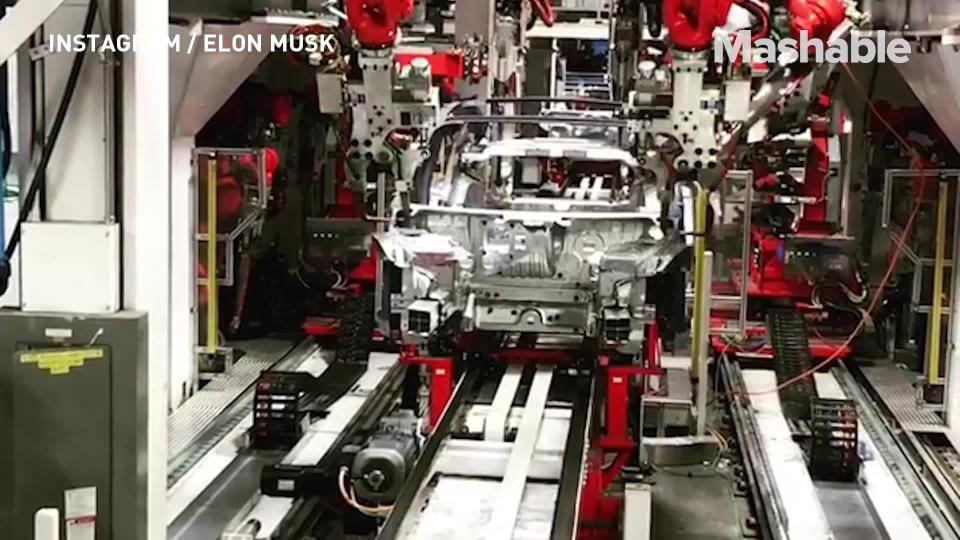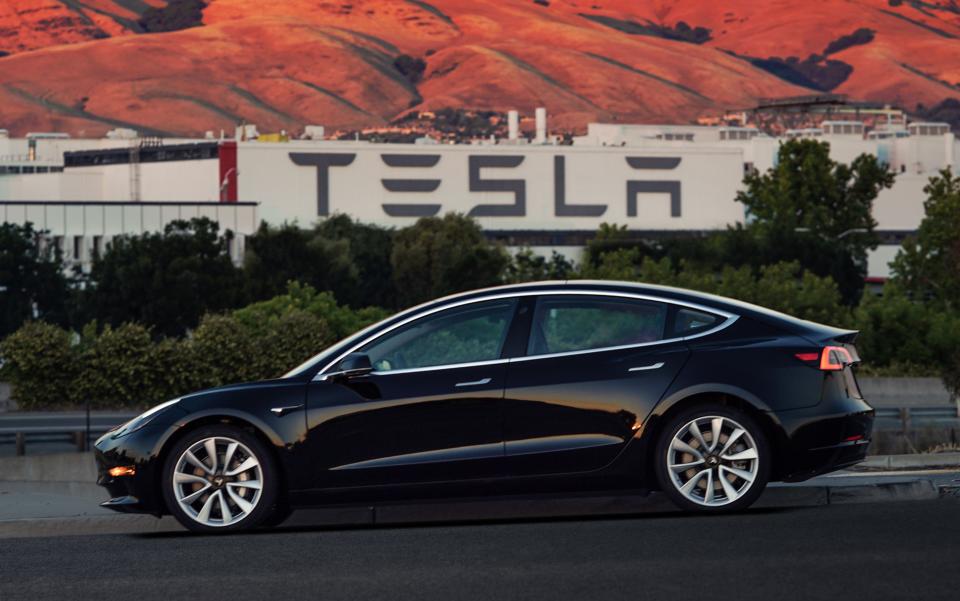Consumer Reports might rate the Model 3 'average,' so Tesla claps back


Tesla is in a tiff with Consumer Reports over predictions about the Model 3's projected reliability ratings.
The automaker's had its ups and downs with the consumer advocacy publication in the past. The latest squabble comes after news that Consumer Reports predicts that the Model 3 will be given an "average" rating for reliability — once reviewers actually have a chance to drive the car, that is.
Tesla's other sedan, the Model S, only just surpassed an "average" rating in the most recent Car Reliability Survey, which depends on consumer feedback from drivers and the organization's own test data.
SEE ALSO: Tesla fires hundreds of workers companywide amid production struggles
Wall Street Journal auto reporter Tim Higgins had news about the rating ahead of its publication, which he shared on Twitter.
Consumer Reports predicts Tesla Model 3 will have average reliability. Announcement here 👇 pic.twitter.com/rplKo11frG
— Tim Higgins (@timkhiggins) October 19, 2017
Consumer Reports published a writeup about the Model 3, in which the Model S's improved reliability marks are cited as a baseline for what car buyers might expect from the newer vehicle. The tone of the piece was largely positive, describing the organization's policy of making predictions for upcoming vehicles based on factors like manufacturer history and ratings from vehicles that share major components.
Since the Model 3 is thought to be a simpler version of the S, the reviewers decided they could expect it to be slightly less reliable. Still, the rating prediction note ended with the caveat that the Model 3 would be thoroughly tested and reviewed for rating purposes, once Consumer Reports is actually able to purchase one (the organization buys the vehicles it reviews to remain impartial).
That wasn't sufficient for Tesla. A spokesperson for the automaker was dismissive of the Consumer Reports rating when we reached out for comment.
"It’s important to note that Consumer Reports has not yet driven a Model 3, let alone do they know anything substantial about how the Model 3 was designed and engineered," the spokesperson wrote. "Time and time again, our own data shows that Consumer Reports' automotive reporting is consistently inaccurate and misleading to consumers."
Tesla has faced some highly publicized issues throughout the Model 3's production, so potential buyers might turn to Consumer Reviews for some more guidance, since a very limited number of people outside of the automaker's payroll have actually driven one. The Model 3 might eventually prove to be more reliable than the average car once Tesla can actually produce enough to meet demand — but until then, all consumer can do is wait for the end of the company's production hell.
WATCH: This is how much a fully loaded Tesla Model 3 costs


 Yahoo News
Yahoo News 
